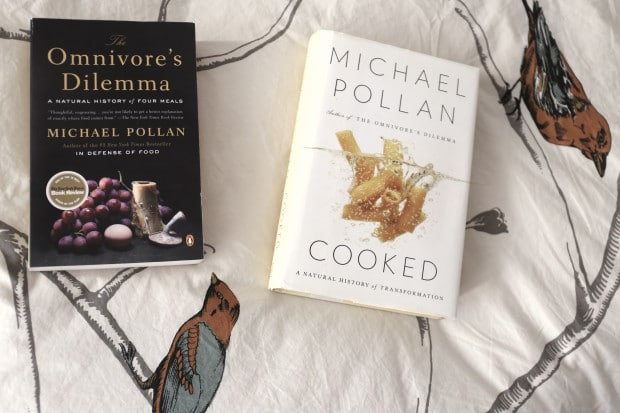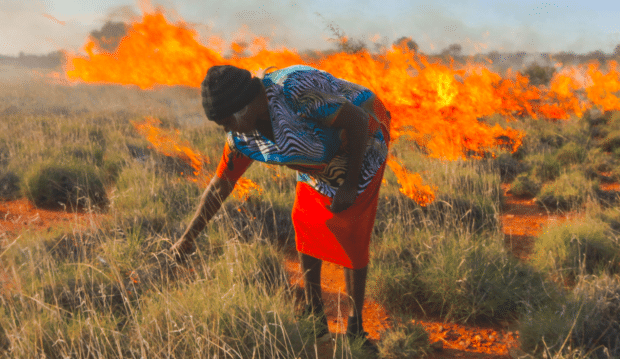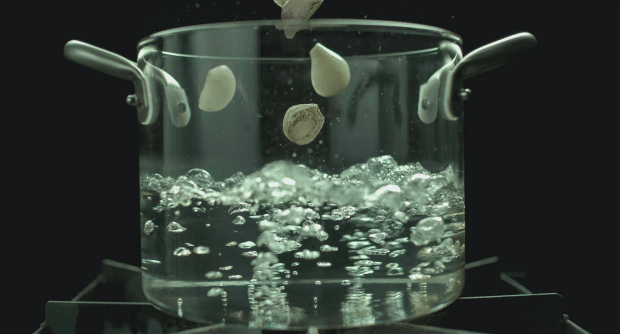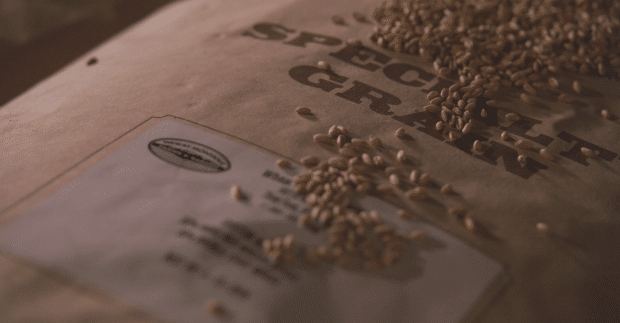From best-selling author Michael Pollan (The Botany of Desire, The Omnivore’s Dilemma, In Defense of Food), Oscar-winning filmmaker Alex Gibney (Steve Jobs: The Man in the Machine, Going Clear: Scientology and the Prison of Belief, Taxi to the Dark Side, Enron: The Smartest Guys in the Room), and an all-star cast of directors and cinematographers comes the Netflix Original Documentary Series Cooked, which examines the primal human need to cook and issues a passionate pitch for a return to the kitchen in order to reclaim lost traditions and restore balance to our lives.
Michael Pollan is one of the world’s most famous food writers (and one of my favourites). He’s been ranked by TIME Magazine as one of the 100 most influential people (and even appeared on Oprah!). His award winning books have helped dramatically shift the way we think about the food we put in our bodies.
I first read his smash hit, The Omnivore’s Dilemma, at the University of Guelph while I was studying Hotel and Food Administration. I was soaking up food knowledge like a sponge while taking classes on culinary anthropology, sensory evaluation, apiculture and oenology. When I recently heard Netflix was transforming Pollan’s groundbreaking book Cooked into a docu-series I was excited to see how the author’s fascinating research on the history of cooking came to life on the screen.
Each of the series’ four episodes examines one of the physical elements used throughout the ages to transform raw ingredients into delicious dishes: fire, water, air, and earth. Cooked takes viewers on a visually stunning journey to meet, among others: an Aboriginal tribe in Western Australia that fire-roasts Australian monitor lizards, a Connecticut Benedictine nun and microbiologist who makes traditional French cheese, Peruvian brewers who use human saliva to ferment a traditional beverage, and an ancient Moroccan granary powered by rivers. Each episode also returns to Pollan cooking in his Berkeley, California, kitchen, appetizingly delivering his core message that, surrounded as we are by fast food culture and processed foods, cooking our own meals is the single best thing we can do to take charge of our health and well being.
The show begins with a few wise words from Pollan, “We have powerful memories of being cooked for. That act of generosity and love I think is very powerful. It goes really deep.”
Michael Pollan’s COOKED on Netflix
I ate up Cooked on a holiday a few years ago and remember obsessively flipping through its pages (and forcing its revelations on my family at dinner). For those who aren’t so bookworm savvy, this docu-series offers a perfect opportunity to introduce yourself to the author and his hand plucked cast of experts. Pollan perfectly summarizes his message by chirping, “Human ingenuity over thousands of years has learned how to transform the gifts of nature into achievements of culture. That’s what cooking is!” The series is an essential watch for those working in the food service industry, to the mothers who grocery shop for their families, passionate home cooks and most importantly, the segment of the population who have “lost their way,” in the kitchen.
Pollan begins by focussing on FIRE, the first major revelation in food history when thousands of years ago early man first learned to heat food. With help from Aboriginal hunters in Australia and a barbecue pit master in North Carolina, Pollan shows how fire shaped human gastronomy, and weighs our duty to the animals we eat. He interviews a Harvard professor about early human life and realizes, “cooking removes us from the time consuming act of chewing. Primates eating raw food spend half of their waking hours munching.” Once we realize that cooking allows humans to be more productive we’re taken on a journey that showcases how important it is to respect the animals we raise for nourishment and the experts who provide the steak on our plate. From farmer, to butcher to BBQ Pitmaster.
We continue along the food history timeline to realize how the invention of the pot changed the game. Cooking with WATER represented a dramatic technological advance because you can’t cook with liquids until you have pots that can survive over the flame. This is also the first time in history humans had the opportunity to mix flavours of plants with meat to create ideal nutritional balance. With the addition of spices and herbs we note the “birth of cuisine,” as new flavours and palates emerge. Pot cooking was also the first time that different cultures combined flavours in geographically different ways: Thailand has their curries, England has their hearty stews and India has that spicy Masala.
Back at home in Berkley Pollan works with a local chef from Chez Panisse to learn the secrets to preparing the perfect stews, soups and braises. The manta here is “all about time,” as proper pot cooking requires hours of loving preparation and tending over the fire.
Pollan explains, “Americans spend 27 minutes a day on average preparing their food. Less than any other nation on earth.” He details the rise of processed food : after the war food companies wanted to sell their new inventions which fed the troops (spam, frozen dinners etc…) to families which were now evolving as women were now working outside of the home. They marketed time and convenience and promised their food solutions tasted better than what you could make at home. Today we have a food industry that constantly undermines the value of cooking. They try to tell us its really hard, time consuming and messy and that you’d be much better off letting them cook for you. But when you let a corporation cook for you the food they prepare is different from what you would make at home. Just read the ingredients list! Pollan shouts, “processed food companies have a vested interest in destroying food culture and in order to bring back our food traditions and healthy eating habits we need to bring our kids back into the kitchen.”
Of the four elements AIR is the most elusive as we can’t see it. The next great advance in the kitchen was the happenstance of bread where water and flour is turned into a life sustaining food. To properly benefit from incorporating air into our food we needed the development of civilization so different groups in the community can focus on special skills: farmers grow and harvest wheat, millers turn seeds into flour, home cooks shape dough and bakers create a golden crust.
Pollan dives into the science of bread making by first exploring rural Morocco where this division of labour still takes place in rural villages. He explains that wheat is the most produced crop in the world and its price and availability is closely watched by political leaders as they know if the price of flour goes up too quickly its bad news (citing the French Revolution and Arab Spring as examples of political unrest brought on by the surging price of wheat).
We travel to a America food science lab where the miracle of gluten is described in detail. It is here where we learn that only 2% of the population suffer from Celiac disease (a serious allergy to gluten) and that the gluten intolerance trend is largely a myth. We’re offered an interesting explanation, “industrialized Wonder Bread has changed the definition of what bread is. Bread is now made cheaper with white flour which is non-perishable and can be easily shipped all over the world. But people are now getting sick as many nutrients from wheat have been removed. Viewers are quickly sold on the powers of sourdough, the traditional method of preparing bread where grains are fermented to unlock their nutrients so we can easily digest them.
The final episode focuses on fermented foods that we prepare from the EARTH thanks to the help of tiny microbes. Pollan believes this is the most miraculous of all food transformations as it doesn’t require heat. Yeast and bacteria are the magic makers, providing us with products such as pickles, kambucha, hot sauce, sake, beer, salami and even chocolate!
EARTH is likely to be the most thought providing from the series as fermentation and the discussion of how rotting food benefits our biology is rarely talked about and largely remains misunderstood. We begin in Peru as local villagers prepare the yuca plant by taking the chopped up root vegetable and chewing it in their mouths. They then spit it out in a pot and create an ancient alcoholic beverage from the enzymes in their saliva. It’s here we hilariously realize most fermented products are often considered gross by cultural outsiders (Icelandic fermented shark, stinky Taiwanese tofu etc…)
We are then sent to a cocoa plantation to learn how chocolate is processed: harvesting pods on the farm, ripping out bitter seeds covered in slime, fermenting these seeds and slime in covered boxes for seven days and then grinding the now dark brown seeds into powder which we then turn into sweet treats.
In Pollan’s kitchen we watch him prepare Korean kimchi and he explains how fermentation has allowed people (before the invention of the fridge) to survive through the winter. All over the world people transform their harvest each Fall into a long lasting decaying product full of nutrients. German’s have their beer, Korean’s spicy kimchi and the French prepare those addictive cave aged cheeses.







